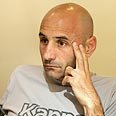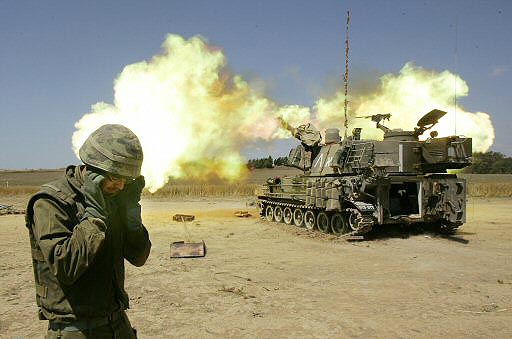
Ofer Shelah
צילום: אורן אגמון
Peretz must justify his position
Israel's 'civilian' defense minister must challenge existing defense strategies
For six years, the IDF and a variety of defense ministers – from Ehud Barak at the beginning of the intifada, and continuing with Benyamin Ben-Eliezer and Shaul Mofaz more recently – have promoted a unified approach to the conflict with the Palestinians: We can, and must restrict the enemy's ability to wage terror attacks, and the way to do this is by force.
Military force, including the use of evermore escalating measures, and economic force. At the end of the day the Palestinians will either break and will return to the negotiating table, or they will be brought to their knees and forced to do Israel's will.
This concept is nourished by the belief of many Israelis that the current conflict was well-planned by the Palestinians, with the intention of creating the opposite effect – to break Israel by terror in order to force additional concessions.
Solid assumptions
This view stands behind most of the military's actions over the past six years, and has survived changes in personnel (prime ministers, defense ministers, chiefs of staff). Even fundamental changes in the regional and global situation have not led this approach to crack.

It remained strong even after it became clear, as even several establishment veterans now admit, they underestimated the human cost on both sides, as well as Israeli weariness and depression and a loss of purpose, which gained expression in the overwhelming support for the Gaza disengagement.
Even those who supported the unilateral pullout from Gaza must now admit that the darkest predictions of pullout opponents have come true, and have even surpassed those predictions. But those who believe in force continue to believe.
Re-examining security
If there was any justification for the nomination of Amir Peretz as defense minister despite his lack of field experience or experience making security-related decisions, it stemmed the need to reexamine prevailing approaches to defense.
Peretz was not expected to know the secure range of artillery fire. Rather, he was expected to question the notion that more shooting, more assassinations, more bombings would bring an end to the fighting.
He was supposed to ask what Israel's true interests are, what we gain from assassinating Jamal Abu-Samhadana at a time when Hamas was treading close to the cliff of resuming terror attacks, and whether raising the bar of Israeli fire would raise the danger of an accident that could bring about yet another descent into violence.
New defense strategies
Peretz tried to bring a new spirit to all things connected to Palestinian lives. In the weeks since he took office he has opened the Karni crossing ("Up to now, Karni has remained closed, and opened whenever possible. Now, it will be remain open except when security concerns demand we close it," he told IDF officials), and he drastically increased the number of Palestinian workers allowed into Israel. As of last weekend, Peretz granted an additional 5,000 entry permits, bringing the total number of workers to 16,500.
At the same time, Peretz instructed the army to ramp up the fighting. This order stemmed from a desire not to appear weak in the eyes of IDF brass. More than that, it stemmed from the fact that as minister he has no other principled stand, and has no other tools to test or to create it: The options presented to him are those presented by army officials, and his views are shaped by the information they provide.
What he did was to tell the army to "find new ways to fight the Qassams." The officers said "yes, sir," and offered to expand the range of artillery fire, and Peretz approved the move.
They said it was possible to aim their fire closer to population centers, and Peretz said yes. He didn't ask if firing into open areas really helped stop the Qassams, or if the price was worth the danger that something like the Beit Lahiya beach incident could happen.
Opposite effects
The result was that the attempt to stop the Qassams brought dozens more Qassams on Sderot, and moves to ease conditions for Palestinian civilians are sure to stop, in light of the ever-worsening security situation.
The problem is not the tough pictures of the young Palestinian girl that lost her family. Photos from exploded buses in Israel are much tougher to look at.
The problem is that these photos, together with the assassination of Abu-Samhadana and the pressures of the Palestinian street, bring closer the day when the last shards of the ceasefire will go up in smoke. Then, we are likely to see many more such pictures for us and them.
If Peretz has the time, he should call together his advisors and ask them how many times we have looked at a similar situation during the fighting. It's not a small number.
If he fails to ask these questions, if he fails to question the notion that the only way to fight strongly is by increasing our firepower, there is no reason for him to be defense minister.










